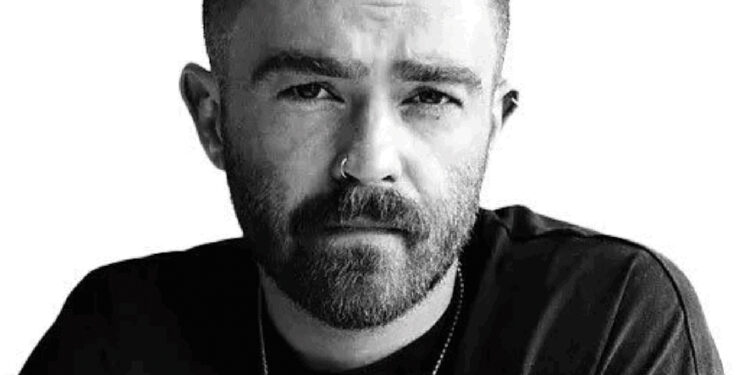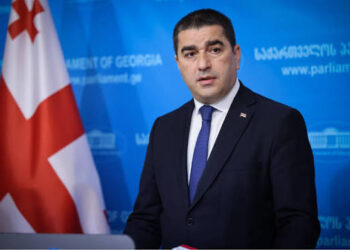British journalist Will Neal, who had been residing in Georgia since 2022, was denied re-entry into the country after traveling to the UK and several EU states, according to the international press freedom group Reporters Without Borders (RSF). The organization criticized the move as politically driven and lacking due process, urging Georgian authorities to immediately reverse the decision.
Neal, who is now reportedly stuck in Yerevan, Armenia, without access to his personal effects left behind in Tbilisi, had recently come under intense scrutiny from Georgian pro-government media. The backlash began in April 2024, shortly after Neal published a report investigating links between UK-based investment firm Hunnewell Partners and Russian billionaire Roman Abramovich—an ally of Georgia’s influential former Prime Minister Bidzina Ivanishvili and currently under EU sanctions.
According to RSF, Georgian media aligned with the ruling Georgian Dream party launched a coordinated smear campaign, accusing Neal of being part of a vague foreign-backed plot to destabilize the nation. Neal himself said he was labeled a “Soros agent” and tied to shadowy “deep state” efforts supposedly involving opposition figures and civil society actors.
“This is part of a broader effort to silence independent scrutiny,” Neal remarked, adding that the accusations were designed to discredit foreign journalists critical of Georgia’s political elite.
This latest incident fits into a growing pattern of entry bans targeting foreign nationals critical of the government, including journalists, NGOs, and opposition politicians. Just days before Neal’s ordeal, an EU diplomat was denied access at the Georgian border—an act the government later described as a “technical oversight,” offering only an informal apology.
Jeanne Cavelier, head of RSF’s Eastern Europe and Central Asia desk, described Neal’s exclusion as a troubling sign of deepening authoritarianism. “This marks a troubling new phase in Georgia’s crackdown on press freedom, particularly targeting foreign media professionals. It reflects the ruling party’s growing intolerance of independent reporting on its affairs,” she said. Cavelier also called on UK officials to take diplomatic steps in response to what she called a clear violation of a British national’s rights.
The Georgian government has yet to issue a formal statement on Neal’s case.
Here is the story, in Will Neal’s own words
I left London on May 19, flying into Yerevan early Tuesday morning. I got a couple of hours of sleep, met up with a friend there, who put me in touch with someone else—another friend—whom I then paid to take me up to the border with Georgia. The reason I chose the land crossing was pretty simple: I suspected I might not be allowed back in. I’d left Georgia just a few weeks earlier, and I knew re-entry might be complicated.
The key difference is this: The thing I was worried about is—obviously—if I had flown into Tbilisi, there was a chance I’d get detained for however many hours, and during that time they could take my phone, my laptop—and obviously they’ve got ongoing work on them, as well as messages with sources, contacts. By using the land crossing, I figured if they said no, they’d simply turn me away at the border, and that would be the end of it.
This all really started a few weeks prior. I’ve been reporting from Georgia for about three years. Over time, I’d picked up on signals that certain government agencies weren’t exactly pleased with some of the stories I’d written. I’d never been directly attacked, but there had been dismissive comments, pushback—denials from official sources.
Then, at the end of March, I published a story in Byline Times, a UK-based outlet. It was an investigation into Hunnewell Partners, a private equity firm that owns TV Imedi and has very close ties to the ruling Georgian Dream party and its founder Bidzina Ivanishvili —particularly through a key figure, Irakli Rukhadze. It’s not exactly a well-guarded secret that Imedi has become a cheerleader for human rights abuses, disinformation, and conspiracy theories.
Now, I’d written about Imedi before, back in October. At the time, they pushed back, claiming they were pro-European, pro-Ukraine, pro-Western, the whole lot. But this new piece was different. I had obtained leaked documents showing that Hunnewell and Rukhadze had a longstanding, over a decade long, in fact, lucrative business relationship with none other than Roman Abramovich. The latest deal between Hunnewell and Abramovich, though it was offshore, through a limited partnership, had ended in April 2022. So that means the relationship lasted until at least six weeks after Abramovich was sanctioned by the UK for supporting Russia during the war.
So, we ran the piece. We followed all standard journalistic procedures—right of reply, transparency about funding. We wrote to Hunnewell: ““These are the things we’re going to publish, here’s your chance to respond.” They replied, and we included all the relevant detail in the piece we published.
It went out on a Monday, end of March. And the initial response? Well, they clearly weren’t happy about it. But it was relatively muted. Kind of like, “Oh, this story is out there, but there’s nothing to it.”
At the bottom of the story, I had noted that the piece had been funded by the Civil Society Foundation, which was formerly part of the Open Society Foundation. The grant had been administered by Civic IDEA—Tina Khidasheli’s organization. The reason for that is that, when I applied for the grant, they said, “Since you’re not a Georgian national, we need to go through an organization.” That information was all disclosed in the article.
But then Imedi picked up on it. That was the point when the narrative started to turn toward, “Ah, this is a Soros thing.” And slowly, over a few days, it escalated. “It’s a Soros thing.” “It’s Deep State.” “It’s all coordinated.” And if you looked at reports on Imedi, Rustavi 2, POSTV—all of them claimed the article drew on opposition sources, which wasn’t true. It drew on leaked corporate documents from an offshore provider. That didn’t get mentioned anywhere.
The attacks kept escalating. By around Wednesday, we started seeing formal statements—none of them named me directly, but they were clearly targeting the story’s content. They painted me as part of some Soros-funded, ill-defined Deep State conspiracy. They said I was biased, and a supporter of the radical opposition.
What was alarming was that some of the statements being quoted were from Georgian Dream MPs. There was David Matikashvili, Nino Tsilosani—all parroting the same narrative.
Then on the evening of April 6, there was this hour-long “exposé” by Imedi TV—commissioned lies, basically—a kind of state narrative package. It was an in-depth dive into publicly available info about my professional history and funding, including my time at the Organized Crime and Corruption Reporting Project (OCCRP), which is also Open Society–funded.
Now, I wasn’t particularly impressed by the quality—it was just stuff pulled off my LinkedIn or website, dressed up to make me look like some sinister operative. But what I did find disconcerting was they had included footage of me at the Coalition For Change headquarters on election night last October. It looked like footage pulled from TV—it might have been Mtavari or Formula. I’m in the background, three seconds, max. But the fact that they tracked that down…
None of this changed my travel plans. I had already booked a trip out of Georgia. I knew I’d be coming back in mid-to-late May. That was the plan. And I thought, well, given everything going on, this is a good time to lay low.
When I left Georgia, at the airport in early April, I was pulled aside at the passport booth. It wasn’t a long delay, about 15 to 20 minutes, but the questioning was bizarre. They asked me how long I’d lived in Georgia, whether I had Georgian friends, and, most unusually, what I thought about the political situation in the country. That’s not standard fare for a passport officer. She was clearly stalling, waiting for something to come through on her screen. It felt like a red flag had been placed on my name.
My lawyer, who is now helping me appeal the entry denial, said that, to his knowledge, none of the other foreign journalists who were denied entry had experienced that sort of questioning. So it did seem targeted.
Fast forward to May. I arrived again in Yerevan and took the land route up to the Georgian border, hoping for a smooth crossing. On the Armenian side, everything was fine. But on the Georgian side, things changed. The officer scanned my passport, had her stamp machine poised and ready, then hesitated. After a pause, she put the stamp away and asked me to step aside. She began frantically texting. A supervisor appeared, spoke with her, then disappeared again. Meanwhile, other travelers passed through without issue.
Eventually, after about 45 minutes, a police officer came over with a printed document. He activated a bodycam, pointed it at me, and read out the decision: I was being refused entry into Georgia under the clause of “other cases envisaged by Georgian legislation.” That’s the catch-all pretext they often use. He told me I could appeal. He was polite, even professional. But the damage had already been done.
Now, I’m appealing the decision. The first step is to compel the Ministry of Internal Affairs to provide an actual reason for the refusal. Whatever justification they give—we intend to challenge it. There’s no real basis for it, and I believe that the stories I’ve written have touched a nerve. If they want to use this as a test case, fine. But I won’t be backing down. Quite the contrary. This is clearly designed to discourage me and others from further coverage of Georgia. And the sole thing that I would say at this point is that it has achieved precisely the opposite. I will continue this ongoing investigation with double the enthusiasm now.
By Team GT














